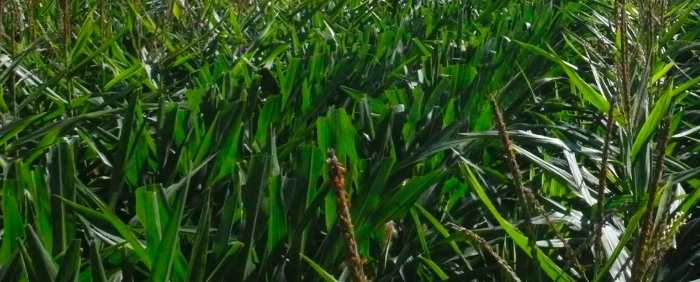
Climate change is a reality. Agronomists are already working on the most suitable field crop varieties to maintain good yields. And that, even when the water is missing, the temperature increases and the climatic hazards multiply!
Corn will gradually move
Maize yields in the south-west have stagnated in recent years. Because if corn needs warm temperatures, it also needs water. However, optimal irrigation is increasingly difficult in the south of France, for reasons of overall water management and its cost. Then, with a rise in temperature that has been confirmed for the last ten years on the whole territory, it is the corn of the more northern areas that sees its yields increase the most. Opportunities for corn crops will develop in the coming years to the north and east as well as in high altitude areas.
The cycle of culture changes
Farmers are sowing more and more early, one to two weeks ahead of the 2000s. But for earlier planting, varieties that are resistant to low temperatures at the start of the crop are also needed . If corn grows faster, it also has less time to store reserves in stalks and grains, which can lead to lower yields.
Scientists plan to plant earlier varieties even earlier, that is to say with a longer life cycle. They hope to gain in yield and obtain mature ears naturally dry.
In short, future varieties of maize will have to resist the cold at the beginning of vegetation, have a life cycle naturally longer, be more tolerant to drought and very high temperatures …. A real challenge!
New ways of improvement
Earlier crop maturity would allow for standing drying and save drying costs. More drought tolerant varieties , with other agronomic traits, can already be used to limit yield losses and to harvest healthy ears later. Some varieties are already marketed in the United States and Kenya (as part of a public-private partnership).
Climate change will also involve, as for all major crops, a finer control depending on the weather, by managing in the most efficient way the supply of nitrogen, tillage and weeding.
A real mobilization
Addressing climate change and its impact on food security in Africa requires real mobilization.
Projects like WEMA (Water Efficient Maize for Africa) need to bring together the maximum of skills and resources. In this project, the International Center for Corn and Wheat Improvement (CIMMYT), a non-profit organization, provides varieties that perform well and are adapted to local conditions. The companies Monsanto and BASF provide the genetic resources , the drought tolerance translators and their scientific expertise.
The African Agricultural Technology Foundation (AATF) and national research organizations in East and South Africa manage the project.
Finally, groups of farmers and seed companies will bring their experience of field testing, multiplication and distribution of seeds .
Nice article, i like it!